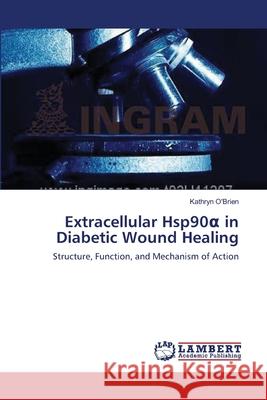Extracellular Hsp90α in Diabetic Wound Healing » książka
Extracellular Hsp90α in Diabetic Wound Healing
ISBN-13: 9783659634543 / Angielski / Miękka / 2014 / 140 str.
Chronic and non-healing skin wounds represent a significant clinical, economic and social problem in both developing and developed countries. There are few effective treatments. The lack of relevant animal models to gain insights into the mechanism of human wound healing and, therefore, to identify new and more effective therapeutic targets remains a major challenge. While pig wound healing is considered closest to human wound healing, standardized pig models with demonstrated validity for new therapeutic studies are needed. This report is a systematic evaluation and establishment of both a normal and a diabetic pig wound healing model. We show similar histological changes taking place in diabetic pig and human skin and demonstrate a strong correlation between the duration of diabetic conditions and the length of delay in wound healing. We demonstrate the effectiveness of recombinant Hsp90 protein, to promote both acute and diabetic wound healing in these pig models. More importantly, we have narrowed down the minimum therapeutic entity of secreted Hsp90 to a 27 amino acid peptide. Also, two amino acids of Hsp90 are shown to be important to the migration of skin cells in vitro."
Chronic and non-healing skin wounds represent a significant clinical, economic and social problem in both developing and developed countries. There are few effective treatments. The lack of relevant animal models to gain insights into the mechanism of human wound healing and, therefore, to identify new and more effective therapeutic targets remains a major challenge. While pig wound healing is considered closest to human wound healing, standardized pig models with demonstrated validity for new therapeutic studies are needed. This report is a systematic evaluation and establishment of both a normal and a diabetic pig wound healing model. We show similar histological changes taking place in diabetic pig and human skin and demonstrate a strong correlation between the duration of diabetic conditions and the length of delay in wound healing. We demonstrate the effectiveness of recombinant Hsp90α protein, to promote both acute and diabetic wound healing in these pig models. More importantly, we have narrowed down the minimum therapeutic entity of secreted Hsp90α to a 27 amino acid peptide. Also, two amino acids of Hsp90α are shown to be important to the migration of skin cells in vitro.











